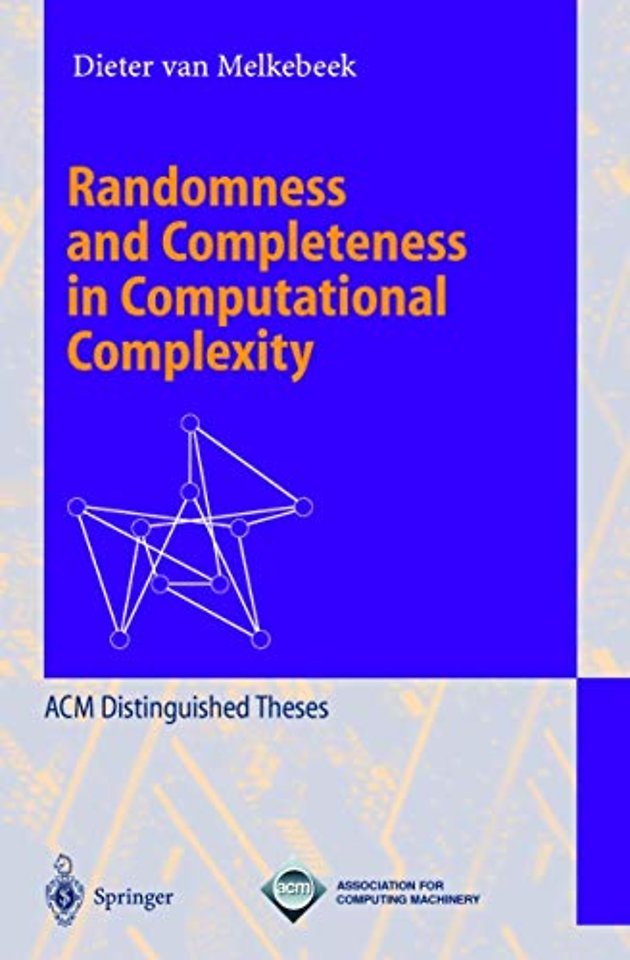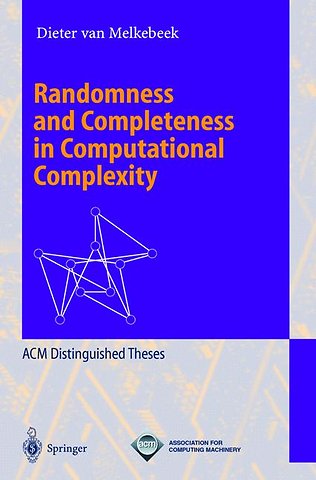Randomness and Completeness in Computational Complexity
Samenvatting
This book contains a revised version of the dissertation the author wrote at the Department of Computer Science of the University of Chicago. The thesis was submitted to the Faculty of Physical Sciences in conformity with the requirements for the PhD degree in June 1999. It was honored with the 1999 ACM Doctoral Dissertation Award in May 2000. Summary Computational complexity is the study of the inherent di culty of compu- tional problems and the power of the tools we may use to solve them. It aims to describe how many resources we need to compute the solution as a function of the problem size. Typical resources include time on sequential and parallel architectures and memory space. As we want to abstract away from details of input representation and speci cs of the computer model, we end up with classes of problems that we can solve within certain robust resource bounds such as polynomial time, parallel logarithmic time, and logarithmic space. Research in complexity theory boils down to determining the relationships between these classes { inclusions and separations. In this dissertation, we focus on the role of randomness and look at various properties of hard problems in order to obtain separations. We also investigate the power of nondeterminism and alternation, as well as space versus time issues. Randomness provides a resource that seems to help in various situations.

